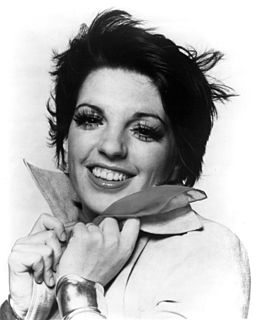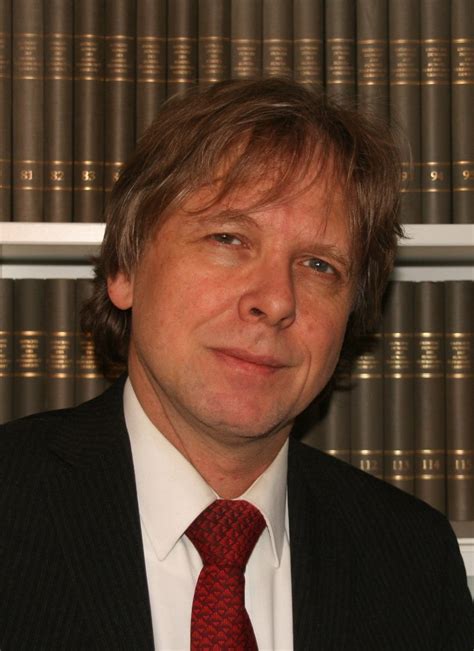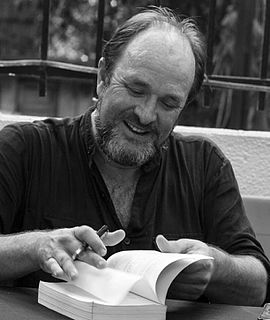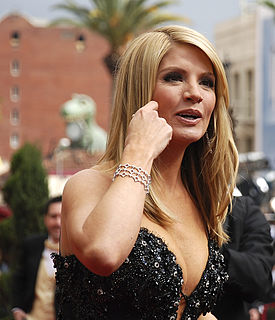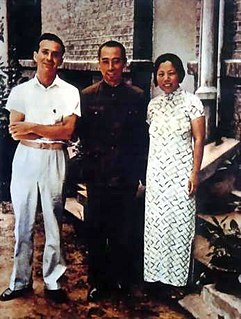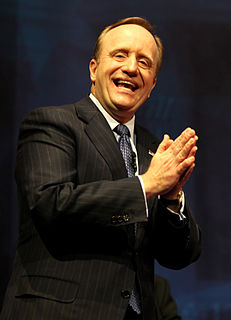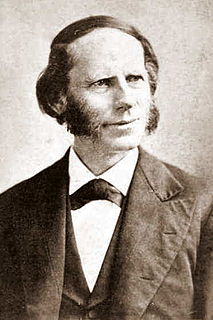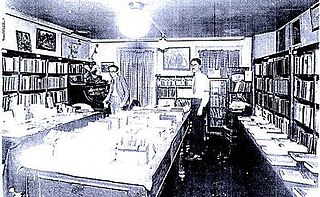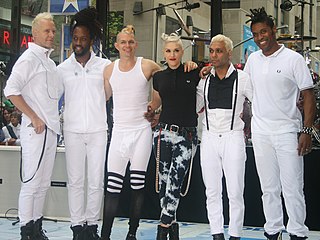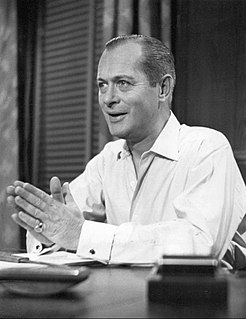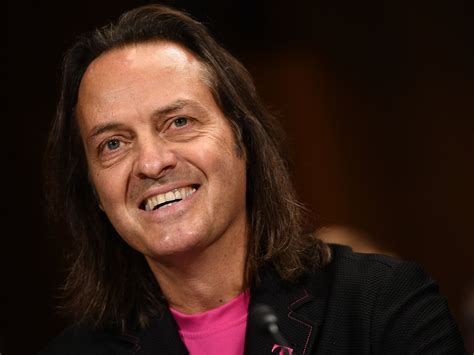Top 1015 Owned Quotes & Sayings - Page 17
Explore popular Owned quotes.
Last updated on April 19, 2025.
During the last 17 years... I have been working at the restoration of a once exhausted hillside. Its scars are now healed over, though still visible, and this year it has provided abundant pasture, more than in any year since we have owned it. But to make it as good as it is now has taken 17 years. If I had been a millionaire or if my family had been starving, it would still have taken 17 years. It can be better than it is now, but that will take longer. For it to live fully in its own responsibility, as it did before bad use ran it down, may take hundreds of years.
It was like Mama suddenly realized I was good, that she didn't have to apologize for me. It was the strangest feeling. One minute I was on stage with my mother, the next moment I was on stage with Judy Garland. One minute she smiled at me, and the next minute she was like the lioness that owned the stage and suddenly found somebody invading her territory. The killer instinct of a performer had come out in her.
Edward Abbey said you must brew your own beer; kick in you Tee Vee; kill your own beef; build your cabin and piss off the front porch whenever you bloody well feel like it. I already had a good start. As a teenager in rural Maine, after we came to America, I had learned hunting, fishing, and trapping in the wilderness. My Maine mentors had long ago taught me to make home brew. I owned a rifle, and I'd already built a log cabin. The rest should be easy. I thought I'd give it a shot.
The way Mom saw it, women should let menfolk do the work because it made them feel more manly. That notion only made sense if you had a strong man willing to step up and get things done, and between Dad's gimp, Buster's elaborate excuses, and Apache's tendency to disappear, it was often up to me to keep the place from falling apart. But even when everyone was pitching in, we never got out from under all the work. I loved that ranch, though sometimes it did seem that instead of us owning the place, the place owned us.
My father died at 42, of a heart attack. My mother was 32 then. She never wanted to be a victim. And that really resonated as a nine-year-old child. And one of the most revealing things was, very soon after my father died - he was in real estate and he owned some modest buildings - they came to my mother, the men that worked for him, and they said, "You don't have to worry. We will run the business and we will take care of you." And my mother said, "No, you won't. You will teach me how to run the business and I will take care of it and my children."
In 1897, troops from the greatest empire the world had ever seen marched down London’s mall for Queen Victoria’s diamond jubilee. Seventy years later, Britain had government health care, a government-owned car industry, massive government housing, and it was a shriveled high-unemployment socialist basket-case living off the dwindling cultural capital of its glorious past. In 1945, America emerged from the Second World War as the preeminent power on earth. Seventy years later . . . Let’s not go there.
...Dean Mohamet, a Muslim landowner from Patna who had followed his British patron to Ireland. There he soon eloped with, and later marries, Jean Daly, from a leading Anglo-Irish family.... In 1807 Dean Mohamet moved to London where he opened the country's first Indian owned curry restaurant, Dean Mohamet's Hindoostanee Coffee House :...He finally decamped to Brighton where he opened what can only be described as Britain's first oriental massage parlour and became "Shampooing Surgeon to Kings George IV and William IV. "
In the war time many of the publishing houses were privately owned, a single publisher or a publisher and a few associates who were responsible for everything. They could take whatever risks they wanted, could essentially publish what they liked according to their taste. Publishers today are working for big corporations. They have different pressures. I don't think they can make decisions quite as independently as they used to be able to. They have more corporate and financial responsibilities weighing on them. They're not free to go broke or go to jail.
Actually, the phrase "national security" is barely used until the 1930s. And there's a reason. By then, the United States was beginning to become global. Before that the United States had been mostly a regional power - Britain was the biggest global power. After the Second World War, national security is everywhere, because we basically owned the world, so our security is threatened everywhere. Not just on our borders, but everywhere - so you have to have a thousand military bases around the world for "defense."
A man doesn't wasnt to feel that a woman cares more for him than he cares for her. He doesn't want to feel owned, body and soul. It's that damned possessive attitude. This man is mine---he belongs to me! He wants to get away --- to get free. He wants to own his woman; he doesn't want her to own him.(Simon Boyle)
Between 2013 and 2015, the wealthiest 14 people saw their wealth increase by $157 billion. This is their wealth increase, got it? Not what they are worth. Increase. That $157 billion is more wealth than is owned by the bottom 40 percent of the American people. One family, the Walton family, owns more wealth than the bottom 40 percent.
Elvis Presley's talent brightened millions of lives. He widened the horizons of my world certainly. The first record I ever owned was a 78 rpm of "Hound Dog" backed by "Don't Be Cruel" and when I listened to those tunes I felt about ten feet tall and I grinned so hard that I felt like the corners of my mouth would meet in the back and the tip of my head would simply topple off. All I know about Rock and Roll is that it makes people feel good. Elvis Presley more than made me feel good, he enriched my life and made it better.
The industry has changed in big ways. When I started making movies, the studios were not all owned by huge conglomerates, so the decisions were made in a very different way. Over the years, I've watched both the rise and the decimation and fall of the DVD as a portion of where you could generate revenue from making this kind of content. We've seen this change in the balance sheet on the international side of the ledger; it's now a much bigger percentage than it is on domestic, even though movies would have been previously really domestically driven.
That so many of us find it entirely plausible that a vast network of researchers and health officials and doctors worldwide would willfully harm children for money is evidence of what capitalism is really taking from us. Capitalism has already impoverished the working people who generate wealth for others. And capitalism has already impoverished us culturally, robbing unmarketable art of its value. But when we begin to see the pressures of capitalism as innate laws of human motivation, when we begin to believe that everyone is owned, then we are truly impoverished.
Radicals, on the other hand, want to advance from the jungle of laissez-faire capitalism to a world worthy of the name of human civilization. They hope for a future where the means of economic production will be owned by all of the people instead of just a comparative handful. They feel that this minority control of production facilities is injurious to the large masses of people not only because of economic monopolies but because the political power inherent in this form of centralized economy does not augur for an ever expanding democratic way of life.
By the end of the 1960s, the United States owned more than half of the Indian rupee money supply, and that had been acquired through food aid. So I think it's very interesting to see the very long history of how sovereignty and food go together. When some countries remove another country's ability to feed itself, it is a very powerful tool. Imperialist countries, like the United Kingdom, like the United States, have used it for centuries.
Initially, QE contributed to a pretty significant increase in inequality. It raised asset prices, which are owned primarily by the wealthy, while having relatively small if any positive impacts on bank lending, employment, wages or economic growth, so ordinary people haven't had much help. By the third round of QE in 2012-2014, the effects had likely muted quite a bit. There were probably not big impacts on asset prices from QE and the positive effects on employment growth might have strengthened somewhat.
The reality is that the founding fathers were land speculators. The fact was that you couldn't vote in this country if you did not own land, and that was basically you had to be a white man who owned land. Now how did they get that land? They basically had to steal it from someone, and that would be probably the Indians. And so most of the initial founding fathers were, while they may have had some really nice ideas about democracy, they had a lot of issues with people of color. They had a lot of issues with people who held things that they coveted.
People who are following their dreams inspire me. I train at this relatively new gym in West Hollywood called Training Mate. It's owned by a former Australian football player named Luke Milton. The classes are mostly taught by other Australians that are just like Luke: fit, funny, cute, and approachable. Now they're talking about opening another location. He will open another location and be successful because he's following his dream. People like him inspire me because they make me think I can do it too.
If I owned any of these Hot New Issues that have doubled, tripled, quintupled or umptupled within days and in some cases hours after they were issued, I most certainly would grab my fabulous windfall, thank my lucky stars and invest the money. It's utter nonsense to think any newly issued stock is really worth two, ten or 20 times the [offering] price.... A management so stupid as to sell shares [cheap], and an underwriter so obtuse as not to discern the real value, together would provide reason enough for a sensible man to get rid of his shares.
Was he a good kisser, Ms. Lane?” Barrons asked, watching me carefully. I wiped my mouth with the back of my hand at the memory. “It was like being owned.” Some women like that.” Not me.” Perhaps it depends on the man doing the owning.” I doubt it. I couldn’t breathe with him kissing me.” One day you may kiss a man you can’t breathe without, and find breath is of little consequence.” Right, and one day my prince might come.” I doubt he’ll be a prince, Ms. Lane. Men rarely are.
There is no question that the US market is the hardest to break into. I believe that the reason for this primarily has to do with the fact that the majority of the most powerful radio stations in the US are owned by Clear Channel. They are massive and have the ability to break artists worldwide. For the most part, they are dealing directly with the major labels in the US, with whom they have had long relationships. If you are an artist that is not being pushed by Clear Channel radio in the US, your chances of becoming a household name are slim.
Mao lived very much like the rank and file of the Red Army. After ten years of leadership of the Reds, after hundreds of confiscations of property of landlords, officials and tax collectors, he owned only his blankets, and a few personal belongings, including two cotton uniforms. Although he is a Red Army commander as well as chairman, he wore on his coat collar only two Red bars that are the insignia of the ordinary Red soldier.
I’m too young and ridiculous a person to speak for my generation, but I’d be happy to talk about my own experiences as a generation Y writer. I was raised by a generation of hippies. Throughout my childhood, teachers urged me to fight the establishment. My English teacher assigned Ginsberg and Kerouac and declared Bob Dylan “a genius.” My science teacher told me that television was “the new opiate of the masses” and bragged about never having owned one. My drama teacher made us perform Beckett.
The media didn’t hand it to Obama; after all, the Number One cable news channel, Fox, is right-wing. The Number One newspaper, the Wall Street Journal, also has a right-wing editorial slant (and is owned by the same guy who owns Fox News). The Number One talk radio show is Rush Limbaugh, and Sean Hannity is Number Two, and Glenn Beck is Number Three. When you control all the largest media outlets, it’s time to stop grousing about liberal media bias.
In Hong Kong, in our generation that started out in the 1970s, being a director wasn't a big deal. We didn't even have director's chairs. We weren't particularly well paid. The social standing of a film director wasn't that high. It was a sort of a plebeian job, a second or third grade one. And the studio heads are always practical, there's never any fawning because someone is a director. There's very little snobbery about one's position as a director. The only ones people treated differently were those that were also stars; or the directors who also owned their companies.
Orwell says straight, look, in England what comes out in a free country is not very different from this totalitarian monster that I'm describing in the book. It's more or less the same. How come in a free country? He has two sentences, which are pretty accurate. One, he says, the press is owned by wealthy men who have every reason not to want certain ideas to be expressed. And second - and I think this is much more important - a good education instills in you the intuitive understanding that there are certain things it just wouldn't do to say.
We buy things. We wear them or put them on our walls, or sit on them, but anyone who wants to can take them away from us. Or break them.
...
Long after he's dead, someone else will own those stupid little boxes, and then someone after him, just as someone owned them before he did. But no one ever thinks of that: objects survive us and go on living. It's stupid to believe we own them. And it's sinful for them to be so important.
I have tried to emphasize to people that, hey, just like President Obama was a really good president, and the fact that he was black I think was historic and unprecedented, but he also claimed and owned his excellence, and that's why I'm saying, okay - I think it's really exciting and historic that I would be the first woman president, but I have a lot of work I want to do. And I hope that people will say, "Hey, she's getting it done." That's how I think about it.
I understand how difficult it can be for an African-American in today’s society. In fact, I can relate to black people very well indeed. My ancestors once owned slaves, and it is in my lineage to work closely with the black community. However, just because they were freed over a century ago doesn’t mean they can now be freeloaders. They need to be told to work hard, and the incentives just aren’t there for them anymore. When I’m president I plan to work closely with the black community to bring a sense of pride and work ethic back into view for them.
I've never owned a really bad car, but when I did my driving lessons I had something pretty bad. It was a Skoda, from back before Skodas were actually good, because I know they've got better recently but this was a proper old one. Roy's School of Motoring, it was called, and it was this cream Skoda with a long bonnet. He did 20 lessons for a really cheap fee because nobody wanted to be seen in this cream Skoda around Enfield!
If you live in the South, you are often a very short distance from a garden, or even a farm owned by your family or by your neighbor's family. When I was a child, even though I grew up in an era of highly processed food, the grocery store sold local field peas, lima beans, tomatoes, and sweet potatoes. While there is a deep sense of place in the South - and the foods of this place - I don't want to present a pastoral vision of the contemporary South. The majority of Southerners cannot access fresh, local, affordable food.
What shop did this book come from? she asked. Her father was looking worried at the cooker. He always got rice wrong. I don't know, Brooksie, he said, I don't remember. That was unimaginable, not remembering where a book has come from! and where it was bought from! That was part of the whole history, the whole point, of any book that you owned! And when you picked it up later in the house at home, you knew, you just knew by looking and having it in your hand, where it came from and where you got it and when and why you'd decided to buy it.
God is dead. God remains dead. And we have killed him. How shall we comfort ourselves, the murderers of all murderers? What was holiest and mightiest of all that the world has yet owned has bled to death under our knives: who will wipe this blood off us? What water is there for us to clean ourselves? What festivals of atonement, what sacred games shall we have to invent? Is not the greatness of this deed too great for us? Must we ourselves not become gods simply to appear worthy of it?
A lawyer is sometimes required to search titles, and the client who thinks he has good right to an estate, puts the papers in his hands, and the attorney goes into the public records and finds everything right for three or four years back; but after a time he comes to a break in the title. So he finds that the man who supposed he owned it owns not an acre of the ground which belongs to someone else. I trace the title of this world from century to century until I find the whole right vested in God. Now to whom did he give it? To his own children. All are yours.
This, milord, is my family's axe. We have owned it for almost nine hundred years, see. Of course, sometimes it needed a new blade. And sometimes it has required a new handle, new designs on the metalwork, a little refreshing of the ornamentation . . . but is this not the nine hundred-year-old axe of my family? And because it has changed gently over time, it is still a pretty good axe, y'know. Pretty good.
America is full of businesses bearing old Christian names, but which are really owned and run by Jews. Most of them have been acquired in the manner I have just described, the way the Jew creates something out of nothing (slow strangling). The Jew, better than anyone else in the world knows how to dispossess the poor and the members of the middle classes. To fit this case, the old P.T. Barnum adage needs only a little changing. A gentile enters business every minute, with two Jews waiting to take him out of it.
I continue to believe that she has not jeopardized America's national security. Now, what I've also said is that, and she's acknowledged, that there's a carelessness in terms of managing emails that she has owned and she recognizes. But I also think it is important to keep this in perspective. This is somebody who has served her country for four years as secretary of state and did an outstanding job, and no one has suggested that in some ways, as a consequence of how she handled emails, that that detracted from her excellent ability to carry out her duties.
At the end of the day - the long day of your life - as people stand around your grave no one will talk about how big your house was, or how many cars you owned, or your boat or plane... they will only talk about ONE thing and ONE thing ONLY: LOVE! How much you loved them and how much they loved you. So the goal then is to live a life of love. That is all.
The capitalist engine is first and last an engine of mass production which unavoidably also means production for the masses. . . . It is the cheap cloth, the cheap cotton and rayon fabric, boots, motorcars and so on that are the typical achievements of capitalist production, and not as a rule improvements that would mean much to the rich man. Queen Elizabeth owned silk stockings. The capitalist achievement does not typically consist in providing more silk stockings for queens but in bringing them within reach of factory girls.
What an honourable thing is it to be fishers of men! How great an honour shouldst thou esteem it, to be a catcher of souls! We are workers together with God, says the apostle. If God has ever so honoured thee, O that thou knewest it, that thou mightst bless his holy name, that ever made such a poor fool as thee to be a co-worker with him. God has owned thee to do good to those who were before caught. O my soul, bless thou the Lord. Lord, what am I, or what is my father's house, that thou hast brought me to this?
The street is the most impactful for me really, always, and the Internet. I guess I'd like to sell some more light pieces so I can rent some more billboards; that's my only ambition in life really. Then I'd like to save up some money so I can buy a very simple wooden house, and then after that I'd like to start buying billboards. I'd like to buy a bunch of billboards in different cities so we owned them and I could give them to Occupy to tell the truth with.
The idea that money brings power and independence is an illusion. What money usually brings is the need for more money - and there is a shabby and pathetic powerlessness that comes with that need. The inability to risk new lives, new work, new styles of thought and experience, is more often than not tied to the bourgeois fear of reducing one's material standard of living. That is, indeed, to be owned by possessions, to be governed by a sense of property rather than by a sense of self.
The ordinary Nigerians have lived as neighbors down the millennia. I was talking about the British who came and merged a whole number of mini states and big states into one unit. But those people were always there, and they always managed to live side by side with their neighbours. So they were not owned or run by one kingdom. It was not practically impossible for these people when they have different languages and religions to be neighbors. So it is that habit of neighbourliness which is destroyed and put under great strain again and again when you have things like massacres.
We are left with nothing but death, the irreducible fact of our own mortality. Death after a long illness we can accept with resignation. Even accidental death we can ascribe to fate. But for a man to die of no apparent cause, for a man to die simply because he is a man, brings us so close to the invisible boundary between life and death that we no longer know which side we are on. Life becomes death, and it is as if this death has owned this life all along. Death without warning. Which is to say: life stops. And it can stop at any moment.
The American dream is not a sprint, or even a marathon, but a relay. Our families don't always cross the finish line in the span of one generation. But each generation passes on to the next the fruits of their labor. My grandmother never owned a house. She cleaned other people's houses so she could afford to rent her own. But she saw her daughter become the first in her family to graduate from college. And my mother fought hard for civil rights so that instead of a mop, I could hold this microphone.
Besides, I'd seen a really nice pair of shoes yesterday in the mall and I wanted them for my own. I can't describe the feeling of immediate familiarity that rushed between us. The moment I clapped eyes on them I felt like I already owned them. I could only suppose that we were together in a former life. That they were my shoes when I was a serving maid in medieval Britain or when I was a princess in ancient Egypt. Or perhaps they were the princess and I was the shoes. Who's to know? Either way I knew that we were meant to be together.
There are exceptional loyalties and there are old fashion ideas about how you get loyalties, and after all the auditorium is full of people who have co-owned shares with the managers for many decades, and in many cases they co-invested when everyone was young and obscure. Also when you come back to a place like that you are celebrating old loyalties, and of course the basic idea behind so much of Berkshire is the old fashioned idea that the best way to get loyalty is to deserve loyalty.
Strangely, from a life-change standpoint, I sold the company I was running and got divorced in the same month. And so there I was, at home, and I'm not the CEO. I took a few months thinking about what I wanted to do. When the first call came in about running a company owned by Deutsche Telekom, I thought it was laughable and really not something I'd do. I took the meeting mainly because the headhunter I knew. At first I thought I was just helping her fill out the roster, but then I dug into it.
You are very clever,' said the old man shyly. 'I would like to eat your brains, one day,' For some reason the books of etiquette that Daphne's grandmother had forced on her didn't quite deal with this. Of course, silly people would say to babies, 'You're so sweet I could gobble you all up!', but that sort of nonsense seemed less funny when it was said by a man in war paint who owned more than one skull. Daphne, cursed with good manners, settled for, 'It's very kind of you to say so.
American banks may have been unable to supply adequate loans, but the Rothschild consortium in Britain was both able and willing. It was during this time that the Rothschilds were consolidating their new industrial holdings in the United States through their agent, August Belmont. Derek Wilson tells us: "They owned or had major shareholdings in Central American ironworks, North American canal construction companies, and a multiplicity of other concerns. They became the major importers of bullion from the newly discovered goldfields".
The American dream is about achieving happiness. When you become a fire fighter, a police officer or a teacher or a nurse, you know you're not going to become a billionaire. And what my parents achieved working as a bartender and a maid at a hotel after arriving here with nothing, no education, no money. The first words my dad learned in English where I'm looking for a job.You know what my parents achieved? They owned a home in a safe and stable neighborhood. They retired with dignity and they left all four of their children better off than themselves.
Utilities used deregulation to effect a series of mergers limiting competition. In order to accelerate profits, cost cutting ensued, involving the layoff of thousands of utility company employees, including some who were responsible for maintenance of generation, transmission, and distribution systems. A number of investor-owned utilities stopped investing in the maintenance and repair of their own equipment, and, instead, cut costs to enhance the value of their stock rather than spending money to enhance the value of their service.
In virtually every Continental state at this time, aristocracies had to live with the risk that their property might be pillaged or confiscated. Only in Great Britain did it prove possible to float the idea that aristocratic property was in some magical and strictly intangible way the people's property also. The fact that hundreds of thousands of men and women today are willing to accept that privately owned country houses and their contents are part of Britain's national heritage is one more proof of how successfully the British elite reconstructed its cultural image in an age of revolution.
In the '60s and '70s it was a great period for American films because studios were still run by individuals who worked off the seat of their pants and went along with things. At that time, they were very uncertain about what to make because of the influence of television. A lot of really terrific movies were made. But then the studios gradually became more corporate and were owned by corporations and run in that way and now they're very nervous. You see what they make - sequels, franchises and try not to take risks.

